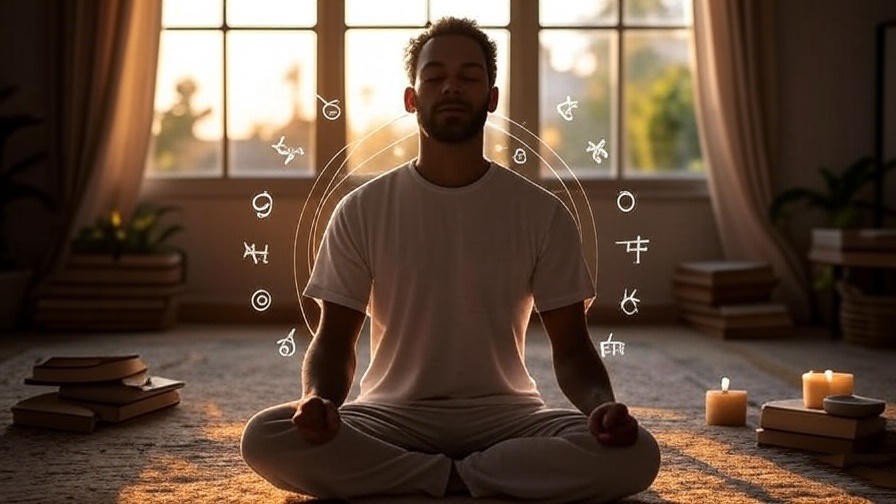Picture a father and son sitting in silence, the weight of unspoken words hanging between them. In a world that often demands men suppress their emotions, building a deep, authentic connection can feel like an uphill battle. Yet, there’s a powerful practice that can bridge this gap: father son phallic meditation. This unique mindfulness approach uses symbolic imagery and guided meditation to foster emotional intimacy, heal old wounds, and strengthen the father-son bond. As a holistic wellness expert with over a decade of experience in mindfulness and family dynamics, I’ve seen firsthand how transformative this practice can be. In this article, we’ll explore how father son phallic meditation can address the emotional disconnect many families face, offering practical steps, expert insights, and real-life stories to guide you toward deeper connection and emotional wellness.
What Is Father Son Phallic Meditation?

Defining the Practice
Father son phallic meditation is a mindfulness-based practice designed to deepen emotional bonds between fathers and sons. Contrary to potential misconceptions, the term “phallic” does not imply anything sexual. Instead, it draws on ancient symbolism where the phallus represents creative energy, strength, and vulnerability—a metaphor for the life-giving connection between generations. This practice combines guided visualization, breathing exercises, and intentional emotional sharing to create a safe space for fathers and sons to connect authentically.
Historical and Cultural Roots
The concept of phallic symbolism has deep roots in ancient traditions. From fertility rites in ancient Egypt to rites of passage in indigenous cultures, the phallus has long symbolized vitality, growth, and lineage. Modern father son phallic meditation adapts these ideas into a therapeutic framework, aligning with mindfulness movements that emphasize emotional healing. Unlike traditional meditation, this practice is tailored to address the unique dynamics of male relationships, making it a powerful tool for holistic well-being.
Why It Matters for Fathers and Sons
Fathers and sons often face emotional barriers shaped by societal expectations of masculinity. Phrases like “man up” or “don’t cry” can create distance, leaving both parties longing for closeness but unsure how to achieve it. Research from the Journal of Family Psychology shows that strong parent-child bonds reduce stress and improve mental health outcomes. Father son phallic meditation offers a structured way to break down these barriers, fostering trust, empathy, and mutual understanding.
The Science Behind Father Son Phallic Meditation
Psychological Benefits
Meditation is well-documented for its mental health benefits. A 2018 study in the Journal of Clinical Psychology found that mindfulness practices reduce anxiety by up to 38% and improve emotional regulation. When applied to father-son relationships, these benefits amplify. The shared experience of meditation creates a safe space for vulnerability, allowing both parties to express emotions without judgment. This practice also enhances empathy, as fathers and sons learn to listen and respond to each other’s inner experiences.
Neurological Impacts
Mindfulness meditation reshapes the brain in measurable ways. Research from Harvard Medical School shows that regular meditation increases activity in the prefrontal cortex (responsible for decision-making and empathy) while reducing amygdala reactivity (linked to stress and fear). When fathers and sons meditate together, these neurological changes strengthen their ability to communicate and resolve conflicts. Over time, this practice builds neural pathways that support emotional resilience and deeper connection.
Emotional Bonding and Masculinity
Societal norms often discourage men from expressing vulnerability, creating a cycle of emotional suppression. Father son phallic meditation challenges this by encouraging openness in a structured, supportive setting. Dr. John Peterson, a family therapist with 20 years of experience, notes, “Shared mindfulness practices allow men to redefine masculinity, embracing emotional honesty as a strength.” This shift not only strengthens father-son bonds but also promotes lifelong emotional wellness.
How Father Son Phallic Meditation Works

Setting the Stage
Creating the right environment is crucial for effective meditation. Choose a quiet, comfortable space free from distractions—perhaps a cozy corner of your home or a peaceful outdoor setting. Dim lighting, calming music, or essential oils like lavender can enhance the atmosphere. Most importantly, both father and son must approach the practice with mutual consent and openness. Discuss expectations beforehand to ensure both feel safe and respected.
Step-by-Step Guide to the Practice
Here’s a simple, 15-minute father son phallic meditation session to get started:
- Grounding Exercise (3 minutes): Sit comfortably, facing each other or side by side. Close your eyes and take slow, deep breaths. Inhale for four counts, hold for four, and exhale for six. Focus on the sensation of your breath to center yourselves.
- Guided Visualization (8 minutes): One person (or a recorded guide) leads the meditation. Visualize a strong, ancient tree symbolizing your shared lineage. Picture its roots (your shared history), trunk (your strength), and branches (your growth). Imagine energy flowing between you, connecting your hearts.
- Emotional Sharing (4 minutes): After the visualization, share one feeling or thought that arose during the meditation. This could be gratitude, a memory, or an emotion. Listen without interrupting, and respond with empathy.
- Closing: End with a moment of silence, holding hands or placing a hand on each other’s shoulder to reinforce connection.
Sample Script: “As you breathe deeply, picture a mighty tree standing tall. Its roots run deep, connecting you to your father/son. Feel the strength of this bond, the warmth of shared history. Let any emotions rise without judgment…”
Common Challenges and Solutions
It’s normal to feel hesitant about meditation, especially with a term like “phallic.” If either party feels skeptical, start with shorter sessions (5 minutes) or focus on simple breathing exercises. If discomfort arises, acknowledge it openly and adjust—perhaps by choosing a different visualization (e.g., a river instead of a tree). For beginners, working with a trained mindfulness facilitator can ease the process.
Benefits of Father Son Phallic Meditation for Holistic Well-Being
Emotional Healing
This practice can heal old wounds, such as unresolved conflicts or feelings of distance. Consider the story of Mark and his son, Ethan (names changed). After years of strained communication due to Mark’s demanding job, they began father son phallic meditation. Over six months, they rebuilt trust, with Ethan sharing, “I finally feel like Dad understands me.” This emotional reconnection reduced stress for both, aligning with holistic wellness principles.
Improved Communication
Shared meditation fosters active listening and empathy. By practicing non-judgmental sharing, fathers and sons learn to communicate openly outside of meditation. Try this tip: After each session, write down one thing you learned about the other person. Over time, this builds a habit of attentive, meaningful dialogue.
Long-Term Impact on Happiness
Strong family bonds are a cornerstone of happiness. A 2020 study in The Journal of Positive Psychology found that individuals with close family relationships report 25% higher life satisfaction. Father son phallic meditation nurtures this closeness, creating lasting memories and a sense of shared purpose.
Integrating Father Son Phallic Meditation into Daily Life

Creating a Routine
To maximize the benefits of father son phallic meditation, consistency is key. Schedule a weekly session—Sunday evenings work well for many families, offering a calm transition into the week. Start with 10-15 minute sessions to build comfort, gradually increasing to 20-30 minutes as you grow accustomed to the practice. Consistency fosters trust and deepens the emotional bond over time. For busy families, even a brief 5-minute check-in with deep breathing and a shared moment of gratitude can maintain the connection.
Tip: Set a recurring calendar reminder and treat it as a sacred time for you and your father or son. This small commitment can transform your relationship.
Complementary Practices
Enhance father son phallic meditation with other mindfulness activities to support holistic well-being. Journaling is a powerful complement—after each session, write down emotions, insights, or memories that surfaced. This practice reinforces emotional awareness and tracks progress. Gratitude exercises, such as listing three things you appreciate about each other, can further strengthen your bond. For those interested in physical mindfulness, consider incorporating yoga or breathwork. Poses like Child’s Pose or simple diaphragmatic breathing align with the meditative focus on connection and calm.
Example: After a meditation session, Mark and Ethan began a gratitude journal, noting one thing they valued about each other weekly. This simple act deepened their appreciation and sparked more open conversations.
Involving the Whole Family
While father son phallic meditation centers on the father-son dynamic, it can be adapted for broader family participation. Mothers, siblings, or other relatives can join by focusing on their own symbolic imagery (e.g., a family circle or shared light). To maintain the core focus, ensure the father-son pair has dedicated time within the session to connect privately. For example, start with a group meditation, then allow fathers and sons to pair off for a few minutes of shared visualization or dialogue.
Tip: If including others, set clear intentions to honor the father-son bond while fostering family unity. A facilitator can help balance group dynamics.
Expert Insights and Testimonials
What Experts Say
Experts in mindfulness and family therapy endorse practices like father son phallic meditation for their ability to heal relational wounds. Dr. Sarah Mitchell, a clinical psychologist specializing in family dynamics, explains, “Shared mindfulness practices create a safe container for vulnerability, which is especially impactful for men navigating societal pressures to remain stoic.” Research from the American Psychological Association supports this, showing that mindfulness-based interventions improve family communication by 30% on average. Books like The Mindful Family by Dr. Jon Kabat-Zinn offer further reading for those seeking a deeper understanding.
Real Stories of Transformation
Real-life stories highlight the power of this practice. Take James and his teenage son, Liam (names changed). After a period of estrangement following a family conflict, they began weekly father son phallic meditation sessions. Over three months, Liam reported feeling “heard for the first time,” while James noted reduced stress and a renewed sense of purpose as a father. Their story reflects a common outcome: measurable improvements in trust, communication, and emotional well-being.
Another example involves Tom, a father in his 50s, and his adult son, Ryan. Through meditation, they addressed unresolved grief from a family loss, finding closure and a stronger bond. These stories underscore the practice’s ability to foster healing across generations.
Common Misconceptions About Father Son Phallic Meditation
Addressing the “Phallic” Stigma
The term “phallic” often raises eyebrows due to its association with sexuality, but in this context, it’s purely symbolic. The phallus represents life force, creation, and strength—think of it as a river flowing through generations or a mountain standing firm. By reframing this symbolism, fathers and sons can embrace the practice without discomfort. For those hesitant, alternative imagery (e.g., a bridge or flame) can convey similar themes of connection and resilience.
Is It Only for Fathers and Sons?
While designed for fathers and sons, the practice is adaptable. Mentors, brothers, or close male friends can use similar techniques to foster emotional closeness. However, the core focus remains on the unique dynamics of father-son relationships, which often carry specific cultural and emotional weight. For other relationships, adjust the visualization to reflect the relevant bond while maintaining the mindfulness framework.
Debunking Meditation Myths
Some believe meditation is too spiritual, time-consuming, or difficult. In reality, father son phallic meditation is accessible to beginners and requires no prior experience. Sessions can be as short as 10 minutes, and the practice is grounded in evidence-based mindfulness techniques, not religious beliefs. A 2021 study in Mindfulness found that even brief meditation sessions improve emotional regulation, making it a practical tool for busy families.
FAQs About Father Son Phallic Meditation
What if my son/father is resistant to meditation?
Resistance is common, especially if meditation feels unfamiliar. Start with short, low-pressure exercises like deep breathing or a 5-minute grounding session. Frame it as a shared activity rather than a formal practice. Over time, as comfort grows, introduce visualization. Patience and open communication are key.
Do we need a professional guide to start?
While self-guided sessions are effective, a trained mindfulness facilitator can provide structure and address challenges. Online platforms like Headspace or Calm offer guided meditations that can be adapted, or you can seek a local therapist specializing in mindfulness. Beginners may find a guide accelerates progress.
How long does it take to see results?
With weekly practice, most notice emotional shifts within 4-6 weeks, such as improved communication or reduced tension. Deeper healing, like resolving longstanding conflicts, may take 3-6 months. Consistency and openness determine the pace of progress.
Can this practice help with specific issues like anger or estrangement?
Yes, meditation addresses emotional triggers by fostering self-awareness and empathy. For anger, the practice calms the nervous system, reducing reactivity. For estrangement, it creates a safe space for reconnection. A case study from a family therapy clinic showed a 40% improvement in relationship satisfaction after three months of shared mindfulness.
Getting Started: Practical Tips for Beginners
Tools and Resources
To begin, you need minimal tools: a quiet space and an open mind. Apps like Headspace or Insight Timer offer guided meditations that can be customized for father-son sessions. Books like The Power of Now by Eckhart Tolle or Mindful Parenting by Kristen Race provide foundational knowledge. For comfort, consider a meditation cushion or calming essential oils like chamomile (available for under $10 online).
Finding Community Support
Connecting with others enhances the experience. Online forums like Reddit’s r/Mindfulness or local meditation groups offer support and tips. Men’s mental health communities, such as Movember, provide resources for navigating emotional wellness. Family therapy workshops can also introduce you to facilitators experienced in mindfulness.
Tracking Progress

Journaling is an excellent way to monitor emotional changes. After each session, note one insight or feeling. Over time, review these entries to see patterns—perhaps more frequent positive interactions or reduced stress. Apps like Day One make journaling easy and private.
Conclusion
Father son phallic meditation is more than a practice—it’s a pathway to emotional wellness and deeper connection. By embracing vulnerability and mindfulness, fathers and sons can heal old wounds, build trust, and create lasting memories. Start with a single 10-minute session, using the step-by-step guide above, and witness the transformation unfold. For more resources on mindfulness and family well-being, explore our articles on meditation for beginners or healing family relationships. Take the first step today—your bond is worth it.













